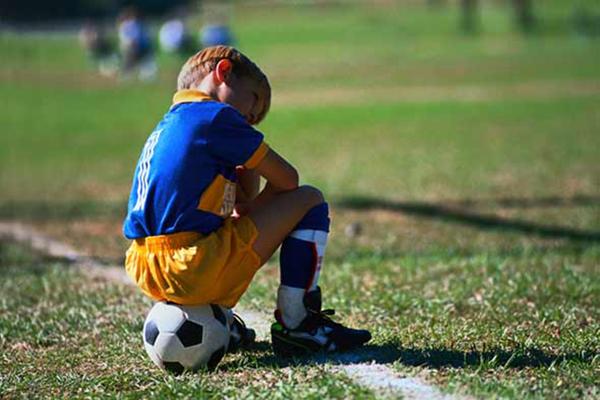You are here
Fun — not winning — essential to keep kids in sports
Aug 27,2014 - Last updated at Aug 27,2014
USA Today (MCT)
That whole idea of winning... well, it seems like it’s overrated when it comes to what determines whether kids are having fun playing sports, a new study suggests. And perhaps surprisingly, getting “swag”, or cool medals or jerseys, isn’t that big a deal either.
The No. 1 reason that kids drop out of sports is because it’s no longer “fun”, says the new study from the Milken Institute School of Public Health at George Washington University in Washington, DC The study, recently published in the Journal of Physical Activity and Health, homed in on the factors that made organised sports fun for kids — findings that could help combat the rising risks of childhood obesity.
The study found that there were 81 “fun” factors, which ranged from sportsmanship, to team rituals to “swag” (aka medals or cool jerseys). The top rated factors weren’t winning or getting medals as you would expect — but being a good sport, trying hard and positive coaching.
“If our goal is to keep kids as physically active for as long as possible, we’re looking at organised sport as this solution to a public health crisis,” said Amanda Visek, author of the study and an associate professor of exercise science at George Washington University.
The study was conducted amid an alarming rise in obesity rates, according to Edward Laskowski, a physical medication and rehabilitation specialist from the Mayo Clinic in Rochester, Minnesota. About 70 per cent of kids drop out of organised sports by the time they reach middle school, the report said. And without a constant involvement in sports, children naturally become less physically active as they become older, Visek said.
“We’re seeing a lot less activity in kids than we did before,” said Laskowski. “About one-third of kids in the US are considered overweight or obese. It’s certainly an epidemic.”
Visek said he hopes that this study, which displays its findings on what’s called a concept map that coaches and parents can follow, will help leagues and coaches inject more fun into playing sports. Visek calls these concept maps FUN MAPS, which she said will help give a full picture of what kids think of as fun.
“When we think about fun we think about this abstract, elusive thing, and now we’re trying to define it,” Visek said. “If you look at the map, it gives you a 360-degree picture of what fun is... and we have displayed things in one picture that’s easy for anyone to understand.”
The factors were determined by asking about 230 children on football teams, coaches and parents to identify what made playing sports fun for kids. The participants were from the Washington metropolitan area, with kids ages nine to 19. The majority of the kids who participated in the study play other sports in addition to football.
Kids who are more physically active experience less depression and anxiety and generally achieve more academically, Visek said.
“We can think about children’s sports participation as an investment in not only their current health but future health,” Visek said.
People need at least one hour of physical activity a day to stay healthy, Laskowski said. Organised sports can help with this requirement, but just engaging in play or doing different activities with the family is enough to maintain a healthy lifestyle, he said.
Related Articles
Focusing only on one sport, year-round, can increase kids’ risk of injury and burnout, according to a clinical report from the America
Obese kids may be able to drop weight with the help of an unlikely aid: video games. Special exercise video games helped overweight chi
The best way to get teens to play sports may be to let them sample a variety of different athletic pursuits earlier in childhood, a Canadian



















